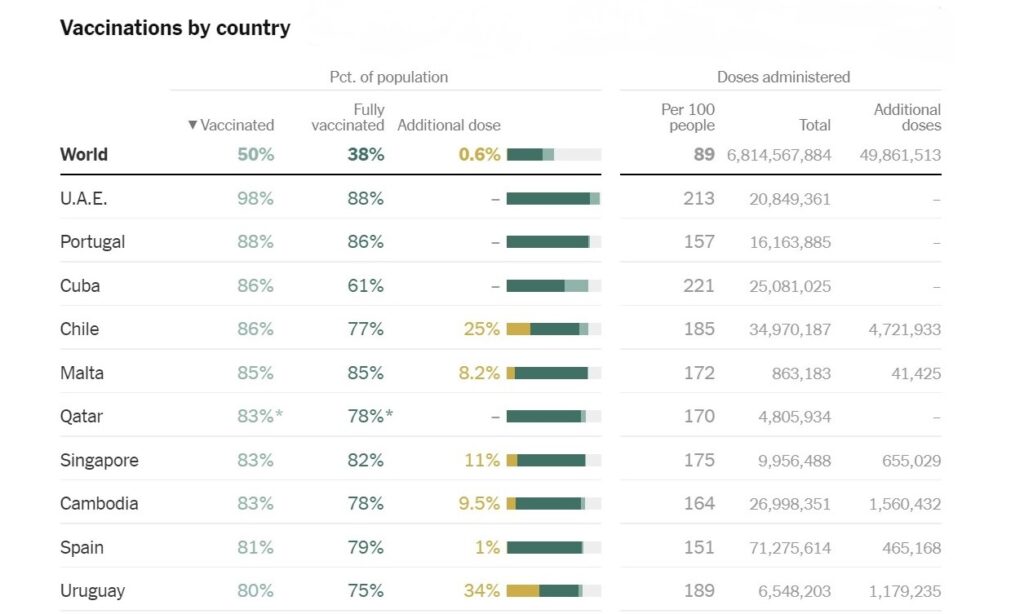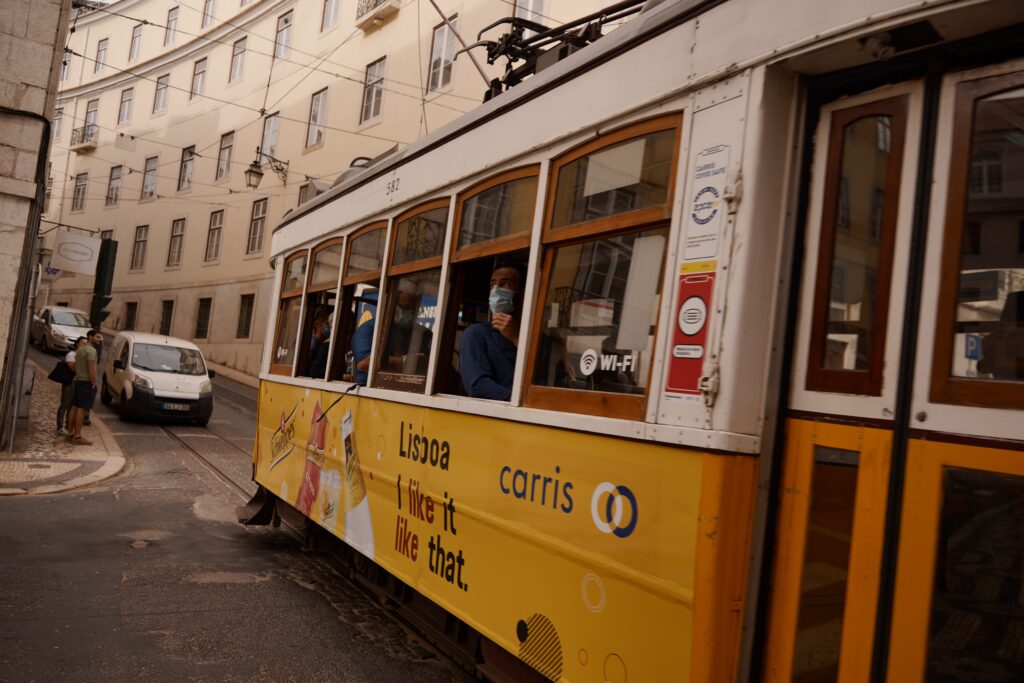Portuguese expat Joao Rei, who lives in the Estonian capital, Tallinn, writes that to get more Estonians vaccinated against COVID-19, the reinforcing information shouldn’t necessarily come from the government, but from the people they trust – their neighbours, friends or even their priest.
“What makes Portugal different?” That was the question I asked my friends on Facebook.
Why does Portugal have such a high rate of vaccination (86% of the population has been fully vaccinated) compared with Estonia (55%) or other countries?
It’s not a question of access to vaccines, it’s a question of people wanting to take them.
I was recently in Italy and the vaccination rate there is also high (71%). Masks were pretty much everywhere, COVID passes were required anywhere you went. As in Portugal, the mask is the default, and you take it off when you are home and alone. Those who go to the office are wearing masks.
The Italians identified Facebook as the main reason why so many people were skeptical of the COVID vaccines. I told them we did have FB in Portugal, too, after all, and we also had our share of anti-vaxxers, we had our share of distrust in government, and we definitely had an anti-authoritarian vein.
Estonians are less likely to obey someone in power
So I’m still unsure what makes Portugal different.
Some of my friends pointed towards cultural differences, using the Hofstede model. Portugal scores high in risk aversion and also high on uncertainty avoidance. Combine that with a high-power distance and you get to a place where, if someone from a position of power tells you that wearing masks and getting everyone vaccinated gets you to safety and reduced restrictions down the line, then you’re going to comply.
Using the same model, we also can observe that Portugal is typically more collectivist than Estonia that scores higher on the individualism scale.
Estonia, on the other hand, has a lower power distance, which means Estonians are less likely to obey someone in a position of power just because of their rank; Estonians are very high on individualism, meaning they prioritise themselves over the group or society. Estonia also scores lower on uncertainty avoidance, which means they are more likely to take risks.

Estonians didn’t take restrictions seriously – why would they bother vaccinating?
Restrictions sucked, but they worked in bringing down the number of infections. No one likes to wear a mask, but if everyone else around you is wearing one, you do it, too.
Estonia didn’t really ever have any major restrictions. At least not for a very long time, and certainly not to the same extent as most other countries did.
The mask use is random, COVID pass checking is still random in many places. Of course, restrictions are always a consequence of high infection and death numbers. Estonia was quite spared in that regard. Portugal had very high numbers for a while, and that led to high restrictions and an enforcement of those restrictions.
Places that had high restrictions also seemed to want to get rid of them more quickly. Placing more hope in mass vaccination helped convince people that we can all get through this and back to normality. In Estonia, where restrictions were never really taken seriously, why would Estonians bother with vaccinations now?

So what can we do to boost the vaccination numbers in Estonia?
Using the same model, and knowing that Estonians don’t see the point of getting vaccinated because they never really had any serious restrictions or major consequences from the virus, what can we do?
The role of civil society
If Estonians don’t trust the government just because they are in charge, then the information has to reach them from someone they trust, someone in their trust networks. Their neighbour, friend, relative, priest perhaps.
You don’t get to 86% vaccination with a government programme alone. You need to do it with a collective effort that involves civil society, religious and community leaders – “influencers”, if you will. The media in Estonia still plays an incredibly important role, and we are going to need their help too if opinions are to be changed.
If I’m the only one wearing a mask I feel stupid; if I’m the only one not wearing a mask I feel stupid. The same thing with vaccines. But in Estonia it feels like we have people who are proudly individualist and go against the generalised flow. I believe there’s little we can do to address those. We should focus on the mass of undecided people who are just not bothered to take the vaccine.
Civil society means NGOs, religious groups, business groups, sports teams, associations. They all play a role. And I do think the government of Estonia would do well to use civil society to help spread the word.
In the end, Portugal got to where it is because it figured out the best way to talk to their citizens about the urgency and need for getting everyone vaccinated. Estonia must find the language to communicate to its citizens. In a different but effective way.

Know your audience, even when it’s a tough audience
Risk takers, with little respect for authority and who like to go against the flow, are a tough audience. If we don’t find the right way to get the message across to them, we soon will have vaccine mandates which will only be met with more resistance.
The government needs to be more consistent with the message, the measures and their enforcement, and to open a dialogue with different sectors of civil society. Can we find a role for all those individualists to play in helping to fight this? Can Estonia, a small country where everyone knows everyone, band together and fight this collectively?
Portugal has some lessons, but in the end, we need to go through this on our own way. The Estonian way.
The opinions in this article are those of the author. Cover: Lisbon, Portugal, in October 2021. Photo by Tamara Schipchinskaya, Unsplash.


You’re missing two critical points:
a) Generalized trust in the NHS and it’s family doctors;
b) The success of the National Vaccination Program. The memory is still fresh, for the generations born in the late 60’s, of kids dying or having serious sequels from preventable diseases like polio, measles, smallpox, diphtheria and tuberculosis. Children mortality was still high in the early 70’s. So there’s a generalized trust in vaccines. Even for other diseases, Portugal is one of the highest vaccinated countries in Europe.